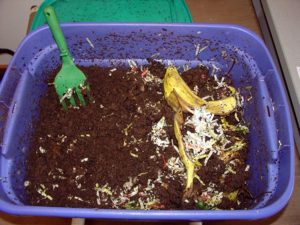‘Organic’ is a hot term right now. It’s the go-to term for marketers who wish to let the general public know that their product is natural and/or was manufactured in a lasting way. This implies the creation process took making the source change be as less bad for the surroundings as possible.
In most cases, an organic T-shirt is normally made of lasting materials like organic natural cotton and/or imprinted with an eco-friendly technique. But – much like the majority of things in life – things aren’t so simple and the idea of ‘organic’ may differ from brand to brand.
Are ‘ethically sourced’ and ‘organic’ the same?
In a nutshell, no. Basically, the foremost is being good to humans as the second has been good to the surroundings. To be able to answer this question properly, let’s take a peek first at what ‘ethically sourced’ and ‘organic’ usually is a symbol of. Visit this website to get more insight, organic printed t-shirts
Ethically sourced usually identifies:
- No child labour;
- No pressured labour;
- No sketchy agreements;
- No unpaid extra hours;
- No dangerous work environments;
- No discrimination;
- And, of course, a full time income wage.
On the other hand organic usually means:
- No genetically altered organisms (GMO)
- No artificial pesticides and insecticides
- Irrigation from weather
- Factories are run by alternative energy
- Organic waste materials is used again either as fertiliser or other
- Drinking water is completely treated after dyeing
Ideally, they might go jointly but that’s not necessarily always the situation. For instance, Fairtrade can be an organisation with the target never to only provide good working conditions to the people in underdeveloped countries but also promote lasting farming. Yet farmers in the program are permitted to use artificial pesticides (from an extremely restricted list) that lead to only 19% of most Fairtrade natural cotton being naturally produced.
According to a report published recently in the United Kingdom by the Ellen MacArthur Base, the style industry creates 1. 2 tonnes of greenhouse emission a season – that’s more than the delivery and international plane tickets industries combined.
Regular natural cotton farming uses 24% of the artificial insecticides and 11% of the pesticides that can be purchased worldwide which – based on the Organic Trade Association – are constructed of harmful elements that can finish up in the water, air and soil. These do not only pollute the surroundings but are also proven to stimulate asthma and even tumor in the most unfortunate of cases.
Creating clothes may also be incredibly wasteful. It requires around 20, 000 litres of drinking water to develop 1 kilogram of natural cotton which is merely enough to make one T-shirt and an individual pair of denim jeans.
Lasting printing methods
Back 2010, Greenpeace launched the Detoxification campaign which includes the target to expose the harmful ramifications of the clothing industry. Since that time, thousands of men and women round the world have challenged mayor companies to improve their ways. Over time they got major brands such as Adidas, C&A and Burberry to make general public commitments to remove the most dangerous materials using their productions.
Such techniques include moving from display to digital printing. Display printing is well known for using huge amounts of water to completely clean the meshes. DTG, on the other hands, is a cleaner process. It uses fewer resources and the majority of the inks* used are drinking water based that are much friendlier to the surroundings. The only problem is that the next is commonly slower which explains why several brands wait to help make the full switch.






